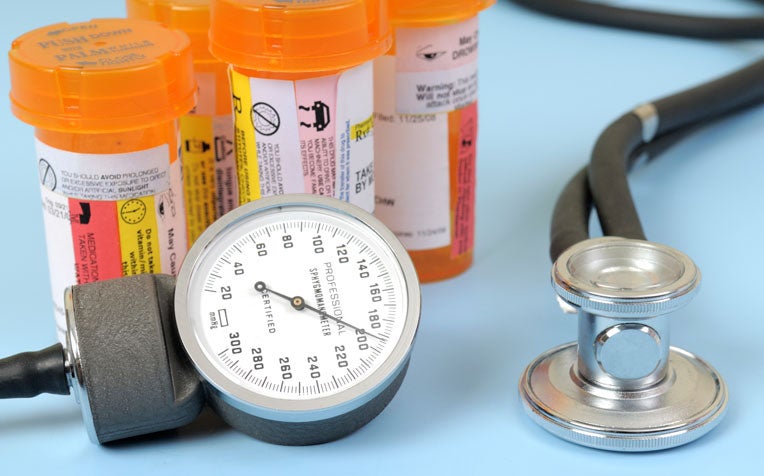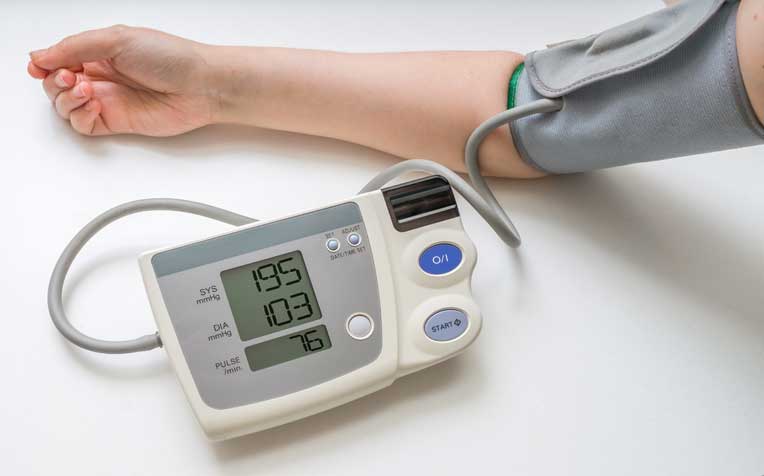
High blood pressure usually leads to more serious complications. Learn to manage it and do not take it lightly.
High blood pressure (hypertension) is a long-term condition
High blood pressure (hypertension) is a long-term medical condition in which one’s blood pressure remains higher than 140/90mmHg.
Sustained high blood pressure can progressively damage the heart’s small and large blood vessels. This will affect the regulation of blood flow as well as other functions of blood vessels. Uncontrolled hypertension can cause serious complications including stroke, heart attack (myocardial infarction), kidney failure and blindness.
High blood pressure can be managed with lifestyle modifications as well as medications. Common lifestyle changes include:
a) Adopt a healthy diet
Reduce your consumption of sugar, salt and alcohol. Also, avoid foods high in cholesterol and saturated fats such as:
- Animal fats
- Eggs
- Red meat (e.g. beef and lamb)
- Coconut milk
- Palm oil
- Instead, choose:
- Lean meats
- Fish
- Low-fat dairy products
- Increase your intake of fruits and vegetables
b) Exercise regularly
Exercise at least five times a week to lower your high blood pressure. Brisk walking is one of the best and simplest forms of exercise.
c) Watch your weight
Maintaining a healthy body weight has been proven to lower the risk of high blood pressure. Ideally, your Body Mass Index (BMI) should be between 18.5 and 22.9kg/m2.
d) Manage stress better
- Adopt a balanced approach to work and family life
- Cultivate healthy habits of stress-relief such as exercising when feeling stressed
e) Stop smoking or vaping (if you're still doing it!)
High blood pressure (hypertension) medication: How they work
If lifestyle modification measures do not work well enough, then medications could be prescribed to help control blood pressure.
Medicines work in different ways to lower blood pressure, and the main categories of such medicines are: diuretics, beta-blockers, angiotensin-converting enzyme inhibitors (ACEIs), angiotensin receptor blockers (ARBs), calcium channel blockers, vasodilators, and alpha-blockers.
Medicines for lowering blood pressure can be used alone, or in combination (i.e. 2 or more medicines from different categories).
Do I have to take blood pressure medication for life? Our Changi General Hospital (CGH) doctor answers this frequently-asked question.
DIURETICS
This group of medication is widely known as “water pills”. They work by helping your kidneys get rid of salt and water via the urine. This reduces the liquid volume which the heart has to pump, which in turn reduces the blood pressure.
Common effects: Frequent urination, dizziness, and constipation. Potassium supplement may be prescribed to replace potassium loss from the urine.
BETA-BLOCKERS
Beta-blockers work by slowing down your heartbeat and reducing the force of the heart muscles, thereby reducing blood pressure. Patients who have history of asthma and chronic obstructive pulmonary disease (COPD) should take this medication with caution as it may aggravate their condition.
Common effects: Slow heart beat, lightheadedness, constipation, and cold extremities.
ANGIOTENSIN CONVERTING ENZYME (ACE) INHIBITORS
ACE inhibitors is a type of high blood pressure medicine that helps prevent an enzyme in your body from producing angiotensin II.
Angiotensin II is a potent vasoconstrictor which makes your blood vessels smaller and increases blood pressure. ACE inhibitors will help reduce the narrowing of your blood vessels, thus decreasing your blood pressure. ACE inhibitors are particularly beneficial for patients with diabetes or kidney problems.
Common effects: Dry cough is the most common side effect. Other known side effects include dizziness and headache.
ANGIOTENSIN RECEPTOR BLOCKERS (ARBS)
ARBs block the action of a hormone, called angiotensin II, which constricts blood vessels. This blocking effect relaxes your blood vessels and lowers your blood pressure, making it easier for your heart to pump blood. Patients will be prescribed with ARBs when they are intolerant to ACE inhibitors.
Common effects: Fewer with ARBs, but possible side effects include headache, dizziness and lightheadedness.
CALCIUM CHANNEL BLOCKERS
This agent prevents calcium from entering cells of the heart and blood vessel walls, producing vasodilatation, resulting in lower blood pressure. The calcium involved is different to the ones responsible in keeping your bones strong.
Common effects: May include headache, constipation, rapid heartbeat, shortness of breath and possibly swelling at the feet and lower legs.
VASODILATORS
Vasodilators is a type of blood pressure medicine that work directly on the muscles in the walls of your arteries. It prevents the muscles from tightening and the walls from narrowing. This effect helps in lowering your blood pressure.
Common effects: May include fluid retention, headache, dizziness and rapid heartbeat.
ALPHA-BLOCKERS
Alpha blockers work by keeping the hormone noradrenaline from tightening the muscles of smaller arteries and veins. Hence, the blood vessels remain open and relaxed. This improves blood flow and lowers blood pressure. Alpha-blockers can help improve urine flow in older men with prostate problems.
Common effects: May include hypotension (low blood pressure), headache, pounding heartbeat and nausea.
High blood pressure is a challenging public health problem. If it is not well managed, more serious complications such as atherosclerosis, stroke and heart attack will arise.
Hence, with active public health prevention, awareness education, lifestyle modifications and medication compliance, one can potentially decrease both hypertensive prevalence and its complication risks.
Ref: Q15
Related articles:
Related articles:
Contributed by


















 Get it on Google Play
Get it on Google Play